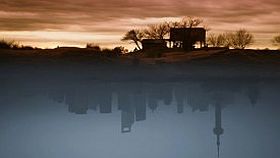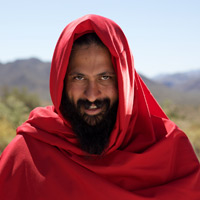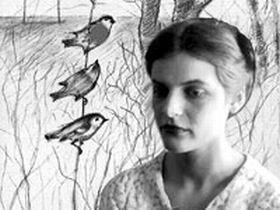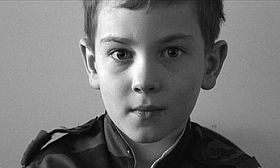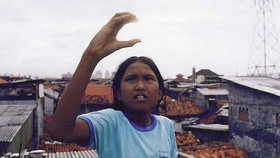Det begynder med et citat af Victor Klemperer: ”Ord kan virke som bitte små doser arsenik. De sluges ubemærket, de synes ikke at have nogen virkning, men efter nogen tid viser giftens virkning sig alligevel.”
Måske skulle der være gjort lidt mere rede for Klemperers metode og teori, være diskuteret, hvordan han gennemførte sin undersøgelse af intolerancens skrevne sprog i 1930-erne, at mediet dengang var aviser og bøger, mens Helle Hansens film tager sig på at undersøge politikernes talte sprog et halvt århundrede senere, og finder sine eksempler i tv. Det gør en forskel. Der er en tøven, når der skrives, også når en politiker skriver, en eftertankens tøven. Og det er denne skriftens langsomhed, som gør det langt alvorligere og modbydeligere, det er jo omhyggeligt og skjult anbragte giftportioner. Det er det da næsten aldrig, når politikerne diskuterer i tv, her er fortalelser tilgivelige, troede jeg måske. Og filmen er for en stor del en montage af forbløffende politikerformuleringer netop fra ophidsede tv-debatter, hvor det ene ord tager det andet. Men Helle Hansen har imidlertid den pointe, at en stor del af sine belæg finder hun i skrevne taler, mange i Pia Kjærsgaards og Mogens Camres taler, som – skal vi sige – er de tydeligste. Og det er rystende, hvad vi genhører, hvad vi ligesom har vænnet vort øre til. De sagde det! Og de havde på forhånd skrevet det, langsomt måske, men uden tøven. Men langsomt har arsenikken virket, Villy Søvndal, viser det sig, er angrebet, og jeg tænker, at vi alle må undersøge vort sprog for forgiftede ord.
I begyndelsen af filmen er der en smuk fortællerstemme, Helle Hansens egen, som i et yderst velskrevet og venligt dansk begynder en reflekteret fortælling om den fremmedfjendske sprogbrug i de danske politikeres debat de seneste 25 år. Den stemme er en tryghed tænkte jeg, jeg kan godt lide fortællerstemmer i film, og den kunne fint have fortsat og uddybet det essay, som Anders Villadsens filmiske citatmontage etablerer. Men stemmen bliver væk, man har måske været bange for, at fremstillingen skulle blive litterær. Jeg synes det er ærgerligt, det var lige på nippet til at blive en klog, litterær og eftertænksom film, men det skulle altså være en såkaldt debatfilm, eller som det hedder i folkeoplysningen, debatskabende, og filminstituttet har da også som led i færdiggørelsen udarbejdet et undervisningsmateriale til Ordet fanger. Godt nok, den har altså været tænkt som skolefilm, er lavet som skolefilm, så kan den ikke samtidig være filmessay på højt plan. Eller kunne den ikke? Helle Hansens fortællerstemme lover det til at begynde med ret overbevisende, men holder det ligesom ikke.
Helle Hansen: Ordet fanger, Danmark 2012, 38 min. Manuskript: Helle Hansen, foto: Henrik Bohn Ipsen, klip: Anders Villadsen, producer: Søren Steen Jespersen, produktion: Monday Reporter og Bastard Film for DR2, distribution: DR2 og filmstriben.dk samt dvd-salg. Filmografi, Helle Hansen: Børn under jorden, 1977, Børnehuset 1997, BZ, 2006. Medvirkende i Dola Bonfils’ Billeder til tiden, 1994.





